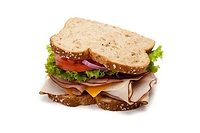The National Institute for Communicable Diseases (NICD) has confirmed nearly 750 cases of Listeria in South Africa, including 67 deaths. This makes the Listeria outbreak the worst ever on record.
In South Africa, Listeria is a reportable disease, which means that those diagnosed must be reported to federal health officials. As is the case with most foodborne illness outbreaks, it is highly likely that not all cases have been reported to the proper authorities. According to the World Health Organization (WHO), patients who have contracted listeriosis belong to various socioeconomic backgrounds, which makes pinpointing the source even more difficult.
The source of the outbreak has yet to be identified, but a food source is suspected. According to the U.S. Centers for Disease Control and Prevention, the riskiest foods that can cause Listeria include soft cheeses, raw sprouts, melons, deli meats, smoked seafood and raw milk.
A statement issued by NICD states the following as their current plan of action:
The National Department of Health is coordinating a multi-sectoral response with all agencies within government. We are firstly interviewing all persons who have been diagnosed with Listeria to understand what food they have eaten, and identify trends.
Secondly, we are working with the food safety and quality industry to obtain quality data from food control and to sample food production facilities.
Thirdly, we have worked with infectious diseases physicians to draw up guidelines for diagnosing and treating the disease.
Fourthly we are working with health promotion to increase awareness of how to prevent listeriosis. Presently no food sources that are contaminated with the outbreak strain have been found, including amongst poultry and poultry products.
Until the source of listeria is identified, the WHO recommends that we follow the ‘FIVE KEYS to SAFER FOOD’:
- Wash hands and surfaces before preparing food
- Wash hands before and after meals
- Separate raw and cooked food, and don’t mix utensils and surfaces when preparing food
- Cook food thoroughly – all bacteria are killed above 70 °C
- Keep food at safe temperatures – either simmering hot, or in the fridge
- Use safe water and safe ingredients to prepare food
Sign up for Food Safety Magazine’s bi-weekly emails!
Subscribe to our podcast: Food Safety Matters!




